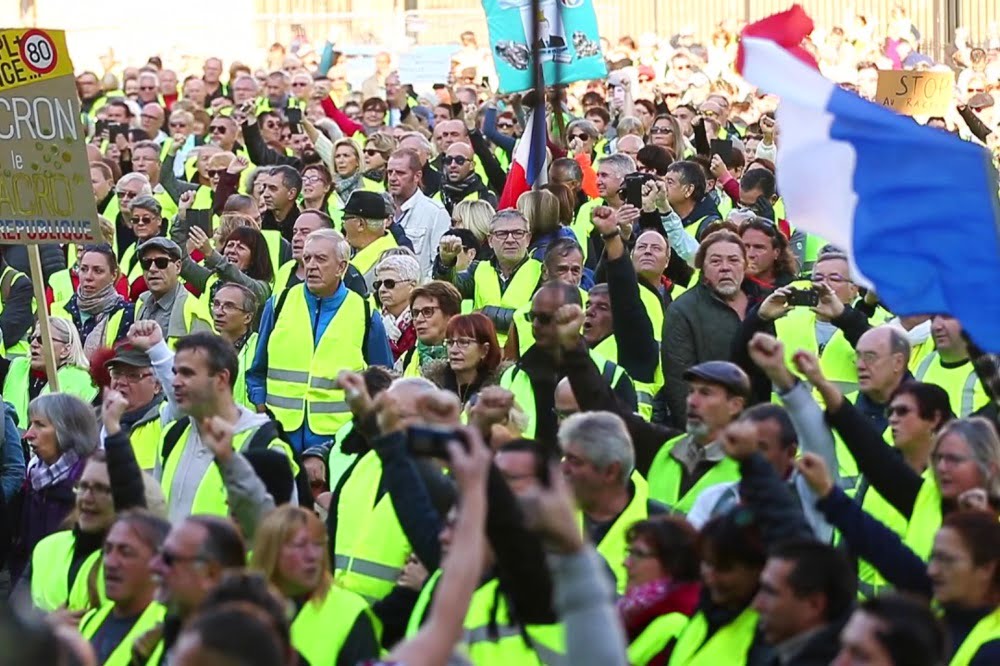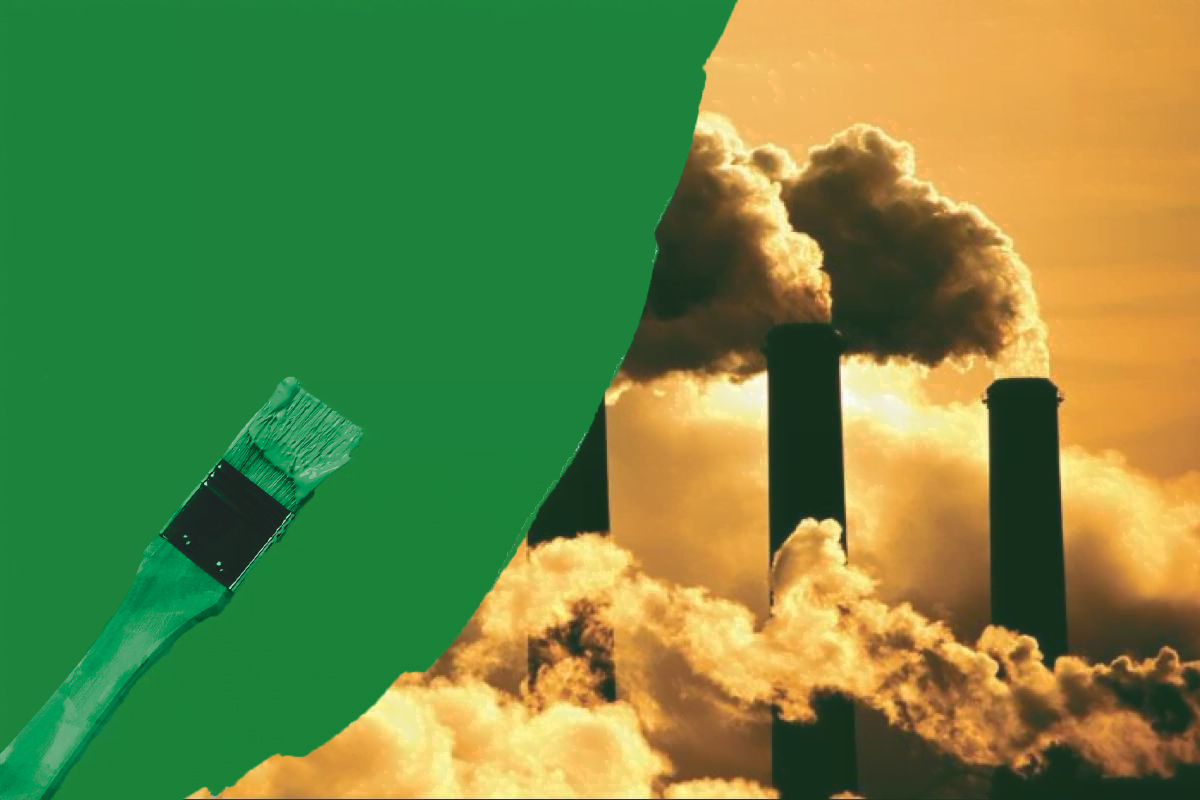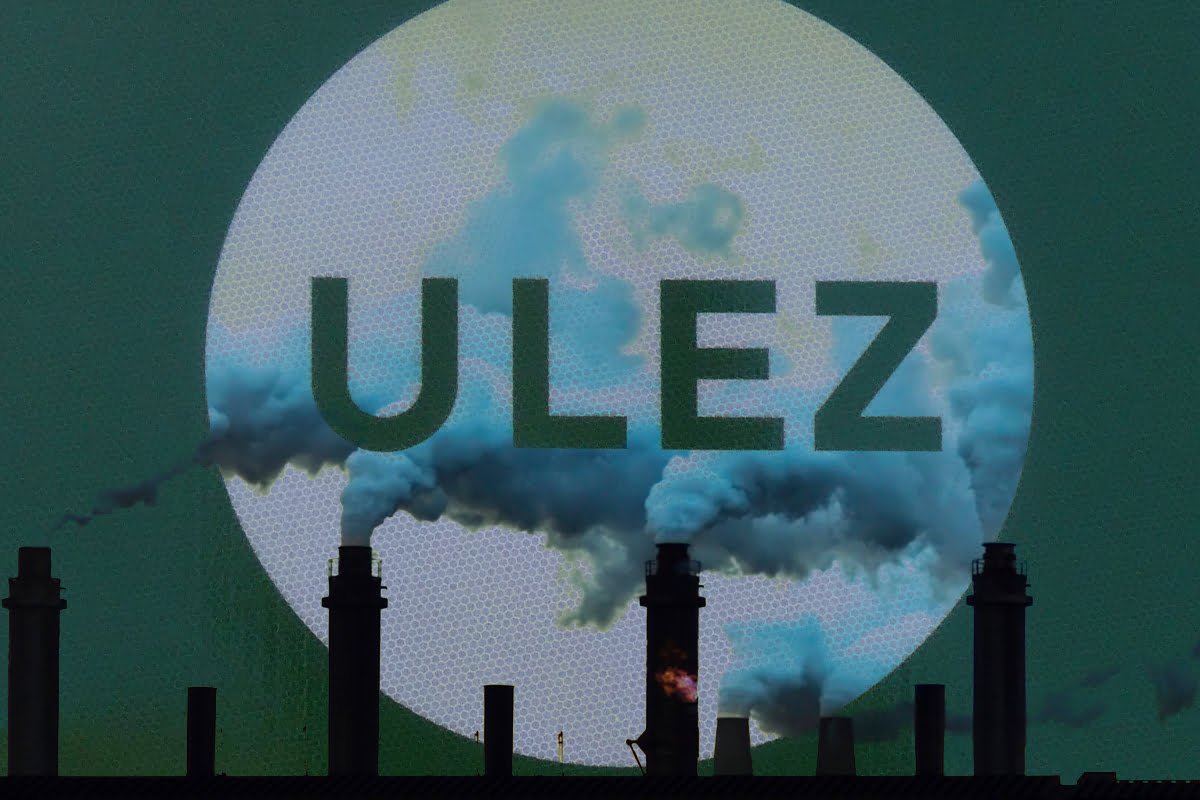Later this month, from 29 August, London’s Ultra-Low Emission Zone (ULEZ) will be expanded to cover the entirety of the city.
Extending to outer boroughs, 280,000 additional motorists will soon face a £12.50 per day charge to drive within areas newly-covered by the capital’s clean-air scheme.
This latest move by London Mayor Sadiq Khan has provoked a considerable backlash. Many leading Labour figures have blamed the ULEZ expansion plans for the party’s recent by-election defeat in Uxbridge.
No doubt, coming on top of the cost-of-living crisis, this policy will be a step too far for many already-burdened working-class Londoners.
Workers have every right to be angered. Yet again, the establishment is placing all the burden for addressing environment issues onto the shoulders of ordinary people. Meanwhile, the billionaires and their fortunes are left untouched.
Who pays?

Again and again in recent years, the ruling class has sought to make individual workers foot the costs for the climate crisis, through so-called ‘green taxes’. In reality, this means green austerity.
With the government’s energy price cap coming to an end, for example, UK households are seeing the return of green levies on their energy bills – equating to around an extra £170 per year.
In other words, instead of profiteering energy monopolies paying for investment in renewable technologies and insulation, it is ordinary families who are expected to cough up.
In Germany, meanwhile, new gas boiler installations are to be banned from the start of 2024. Consequently, workers will be forced to buy expensive heat pumps for around €25,000-30,000. With around half of German households currently using natural gas systems, this imposes severe technical and financial challenges on poorer families.
This has led thousands of Germans to quickly buy new gas boilers before the 2024 deadline, in order to avoid shelling out on much more costly heat pumps down the line – defeating the purpose of these new regulations entirely!
Similarly, the EU’s ‘Green Deal’, which includes a much-needed plan for retrofitting old buildings (46 million to be precise) to make them carbon neutral, will also heap additional costs onto the working class.
In France, President Emmanuel Macron has made much fanfare around proposals for a global levy on greenhouse gas emissions from the shipping industry. At the same time, however, the French government has opposed calls for a ‘green wealth tax’ aimed at the wealthiest ten percent.
Macron should know better than asking workers to pay for environmental measures. In 2018, rising fuel taxes are precisely what sparked the ‘yellow vests’ movement, which saw hundreds of thousands protest against his government, with a backdrop of rising living costs, stagnant wages, and ongoing austerity.
Division and polarisation
In essence, the ruling class is greenwashing its attacks on the working class; presenting cuts and austerity in a seemingly ‘progressive’ packaging.
Elsewhere, meanwhile, both the Biden administration and Starmer’s Labour have attempted to paint protectionist policies and state subsidies for big business in green colours. In other words, economic programmes aimed at defending the capitalists’ interests are masked behind hot-air rhetoric about tackling climate change.

In the absence of a clear class-based solution, this has pushed layers of workers into opposing so-called ‘green’ policies. In more extreme cases, it has led to hostility against environmental activists – or even to outright climate change denial.
The result is that the working class is increasingly being divided and polarised on environmental issues.
In Britain, for example, the recent rollout of low traffic neighbourhoods (LTNs) – road blockages aimed at reducing urban car usage – has stirred up anger amongst local residents.
Complaints have been raised that LTNs have been hastily implemented, without any input from the community, and have simply diverted traffic to poorer, less gentrified areas.
In turn, reactionary elements have opportunistically hijacked these questions for their own narrow interests.
Right-wing pundits such as Nigel Farage are actively and cynically seeking to whip up a culture war, for example, pitching motorists against environmentalists.
Similarly, the EU’s retrofit plans have played directly into the hands of the reactionary Meloni government in Italy, where the policy is particularly unpopular due to the high concentration (and associated costs) of affected buildings.
In turn, establishment politicians are increasingly making noises about scrapping existing climate legislation. Both Rishi Sunak and Keir Starmer have been quick to declare themselves ‘friends of motorists’. And pressure is growing among Tory backbenchers for the UK government to abandon its net-zero emissions pledge, with some even calling for a referendum on this issue.
Fight for revolution
The ruling class’ push for green austerity – and with this, the stirring up of an environmental culture war – highlights the inability of the capitalist system to solve the climate crisis.
In Britain, public transport has been gutted by cuts and plagued by underinvestment. In this context, policies such as the ULEZ expansion mean extra costs for workers who rely on their cars to go about their daily lives. Without proper alternatives in place, many are left with no choice but to take the financial hit.
All the while, the real polluters – the fossil fuel monopolies and other big businesses – are free to carry on as they please, making merry profits along the way.
Attempts to build new infrastructure, such as the farce of HS2, meanwhile, demonstrate how incapable the capitalists and their representatives are at implementing the measures necessary.
Despite the immense amount of wealth that exists in society, the ruling class expects workers to pay for the climate crisis – a crisis caused by the bosses and their profit-driven exploitation of the environment.
Instead, we need to make the billionaires pay for this crisis. This means expropriating the ‘commanding heights’ of the economy and planning production along socialist lines, in order to make the urgent changes required to protect people and the planet.
Only then can green energy supplies, quality public infrastructure, and eco-friendly homes be brought in on a mass scale, without the working class paying the price through job losses and unbearable living costs.
In place of the greenwashing of the ruling class, we must fight for socialist revolution.






